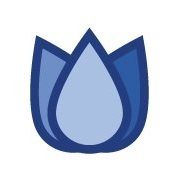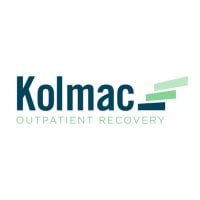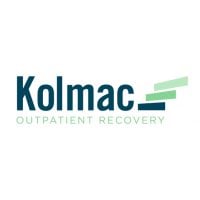Adventist HealthCare Shady Grove Medical Center - Mental Health
Drug Rehab Center in Rockville, Maryland
Adventist HealthCare Shady Grove Medical Center - Mental Health is a drug rehab center located in Rockville, Maryland that specializes in treating opioid addiction, substance abuse, dual diagnosis, drug addiction, and mental health issues with aftercare support, various levels of care including drug rehab, dual-diagnosis, intensive outpatient, outpatient and partial-hospitalization programs all accepting private health insurance.
About This Rockville, MD Facility
Adventist HealthCare Shady Grove Medical Center - Mental Health is an addiction treatment facility located in Rockville, Maryland. It offers a comprehensive approach to treating all forms of substance abuse for adults, from detox and residential programs to aftercare support and ongoing counseling. Their team consists of experienced, knowledgeable professionals, including psychiatrists, psychologists, counselors, nurses, and other specialty staff. Patients can expect to receive cutting-edge treatments and therapies tailored to their individual needs.
At Adventist HealthCare Shady Grove Medical Center - Mental Health, they offer a wide range of care options for adults suffering from substance abuse and addiction. Their comprehensive programs provide the best possible outcomes for individuals suffering from opioid addiction, substance abuse, and dual diagnosis. With their skilled and attentive staff, they strive to create an environment that promotes healing and growth. Their services are accredited by the Joint Commission and licensed by the state of Maryland.
Genders
Ages
Modality
Additional
Conditions and Issues Treated
Substance abuse refers to the intensive and inappropriate use of psychoactive substances. Psychoactive substances are those that affect brain function. These include illegal drugs, alcohol, and even the excessive use of prescription drugs. The overuse of psychoactive substances leads to severe physical or psychological dependence. It also affects the social life and relationships of the affected individual. Substance abuse is treatable.
The duration of treatment at Adventist HealthCare Shady Grove Medical Center - Mental Health in Rockville can require weeks or even months depending on the severity of the condition as there is a risk of relapse. Treatment options include medications, counseling sessions, various types of behavioral therapy, and group therapy in different combinations.
Addiction to prescription opioid painkillers like oxycodone and hydrocodone, and illicit opioids such as heroin, leads to potentially life-threatening withdrawal symptoms when discontinued. Opioid addiction treatment typically involves an inpatient stay at facilities like Adventist HealthCare Shady Grove Medical Center - Mental Health to make sure they get through withdrawal safely. Treatment also includes comprehensive mental health counseling.
Conditions such as anxiety, depression, schizophrenia, bipolar disorder are part of mental illness. This may occur that opioid abuse and vice versa are induced by mental illness. Diagnosing a concurrent diagnosis or co-occurring condition at Adventist HealthCare Shady Grove Medical Center - Mental Health is essential to understand the addiction better.
Levels of Care Offered
This center offers a variety of custom treatment tailored to individual recovery. Currently available are Aftercare Support, Drug Rehab, Dual-Diagnosis, Intensive Outpatient, Outpatient, Partial-Hospitalization, with additional therapies available as listed below.
An intensive outpatient program is a good option for someone in Maryland with a milder or less severe addiction. An IOP may involve daily meetings at a treatment facility, along with personal counseling and peer meetings. Some IOP programs offer half-day treatment, while others offer full-day programs. Adventist HealthCare Shady Grove Medical Center - Mental Health‘s IOP is customized per individual.
Outpatient programs are the standard for addiction treatment. About 9 in 10 U.S. adolescents entering addiction treatment enroll in these programs, so you’re not alone in Rockville, MD. Treatment is delivered in different settings – offices, clinics, and primary care clinics.
Facilities offer a variety of services, such as individual and group counseling and family therapy. During the sessions, you work with a team of experts that include: General physicians, Psychiatrists, Social Workers, and Psychologists. The main goals of outpatient recovery programs are to help addicted individuals reduce drug use and addictive behaviors, eventually becoming entirely sober.
Partial hospitalization (PHP) is a type of outpatient addiction care. Each plan is tailored to meet unique individual needs. Treatment is more intense than that you receive at a therapist’s office. It is less intense than inpatient rehab. The entire treatment takes about ten days to complete. It does not require you to stay at the Maryland treatment center. Each visit lasts several hours, sometimes, eight hours. It can be the best choice for those who have recently developed an addiction.
Aftercare comprises services that help recovering addicts readjust to normal day-to-day Maryland activities. It can last a year or even longer. Services include individual and family counseling, medications to reduce cravings, and treatment of psychiatric and other medical conditions. Aftercare support begins once you have completed earlier stages of treatment.
Adventist HealthCare Shady Grove Medical Center - Mental Health‘s Therapies & Programs
In addiction recovery at Adventist HealthCare Shady Grove Medical Center - Mental Health, therapy plays a significant role. This helps patients get to the root of their addiction and discover how the problems that contributed to their use can be handled better. Therapy can be performed in a group and one on one settings. The patient interacts with the therapist in a one-on-one atmosphere during individual therapy. This encourages them to reflect on the underlying addiction problems and develop ways to avoid potential future abuse.
Addiction and alcoholism affect the entire family. For this reason, family therapy is vital to a person’s recovery from addiction. In contrast to couples counseling, family therapy at Adventist HealthCare Shady Grove Medical Center - Mental Health may include siblings, children, parents, and other significant people in the recovering person’s life. Family support is one of the most important pillars of recovery.
Dialectical behavioral therapy (DBT) is a type of Cognitive Behavioral Therapy that focuses on eliminating specific negative thoughts such as suicidal thoughts that can potentially lead to an individual inflicting self-harm. It is useful in the treatment of patients exhibiting uncontrollable emotions, intense mood swings, and borderline personality disorders.
The term “Dialectic” means the integration of opposites. In the substance abuse context, DBT refers to accepting the patient’s addiction and working to change their thoughts and behavior. It improves life skills such as controlling the intense emotions without reacting impulsively, resolving the interpersonal conflicts effectively, and promoting awareness about self and others.
Cognitive Behavioral Therapy (CBT) examines the relationship between a patient’s thoughts, feelings and behaviors. Adventist HealthCare Shady Grove Medical Center - Mental Health aims to establish a healthy response to thoughts and feelings as an alternative to turning to drugs and alcohol. It also promotes healthy communication between addicts and those around them. It is and effective therapy for people suffering with all types of addictions.
Rational Emotive Behavior Therapy (REBT) is a type of cognitive therapy. It is based on the principle that irrational thoughts are responsible for the emotional and behavioral changes in addiction. So, the therapy starts with identifying the underlying irrational thoughts. These thoughts are then challenged and opposed logically and then replaced with positive thoughts. It also helps to change unwanted behavior with techniques such as meditation.
By imparting positive thoughts and emotions, Rational Emotive Behavior Therapy (REBT) makes the individual self-reliant with a capacity to handle the emotional and behavioral issues in future by themselves without professional help. This self-dependence benefits the patients and prevent relapses.
The recovery technique used by Alcoholics Anonymous is the 12 step program, but it can relate to any form of addiction. The 12 steps that addicts must take on the road to recovery are explained. Measures include acknowledging that you have a problem and agreeing to turn around your life. The curriculum, instructed by Adventist HealthCare Shady Grove Medical Center - Mental Health, also requires a belief in a greater power and making amends to others.
Contingency Management (CM), also called motivational incentives, is a type of pure behavioral therapy. It’s based on the idea that behavior is shaped, motivated, or controlled by its outcomes. CM is a clinical application at Adventist HealthCare Shady Grove Medical Center - Mental Health of operant conditioning, which helps clients eliminate unwanted behaviors by the use of positive and negative reinforcement.
Payment Options Accepted
For specific insurance or payment methods please contact us.
Is your insurance accepted?
Ask an expert, call (888) 674-0062
Additional Details
Specifics, location, and helpful extra information.
Rockville, Maryland 20850 Phone Number301-251-4500 x4581 Meta DetailsUpdated November 25, 2023
Staff Verified
What else do people call Adventist HealthCare Shady Grove Medical Center – Mental Health?
People have occasionally also searched for “Adventist Behavioral Health in Maryland”
Patient Reviews
There are no reviews yet. Be the first one to write one.
Rockville, Maryland Addiction Information
For the past decade, Maryland's rate of drug use and abuse has significantly increased. The overdose rate is currently higher than the national average. This epidemic is due to the many industries where manual labor is required. As soon as prescription opioids were more readily accessible a large part of manual workers started using–and eventually abusing–the painkillers.
The drug addiction problem in Rockville, Maryland, is quite bad. There are more than 1,000 people in the city who are addicted to drugs. The 12-month prevalence for illicit drug use is 7%. Rockville, Maryland, is a great place to get sober and live a healthy life. There are many alcohol and drug rehabs in the area and support groups and 12-step programs to help you in this regard.
Treatment in Nearby Cities
- Ocean City, MD (125.7 mi.)
- Millersville, MD (29.7 mi.)
- Hunt Valley, MD (39.6 mi.)
- Havre De Grace, MD (66.9 mi.)
- Linthicum Heights, MD (30.2 mi.)
Centers near Adventist HealthCare Shady Grove Medical Center - Mental Health
The facility name, logo and brand are the property and registered trademarks of Adventist HealthCare Shady Grove Medical Center - Mental Health, and are being used for identification and informational purposes only. Use of these names, logos and brands shall not imply endorsement. RehabNow.org is not affiliated with or sponsored by Adventist HealthCare Shady Grove Medical Center - Mental Health.









